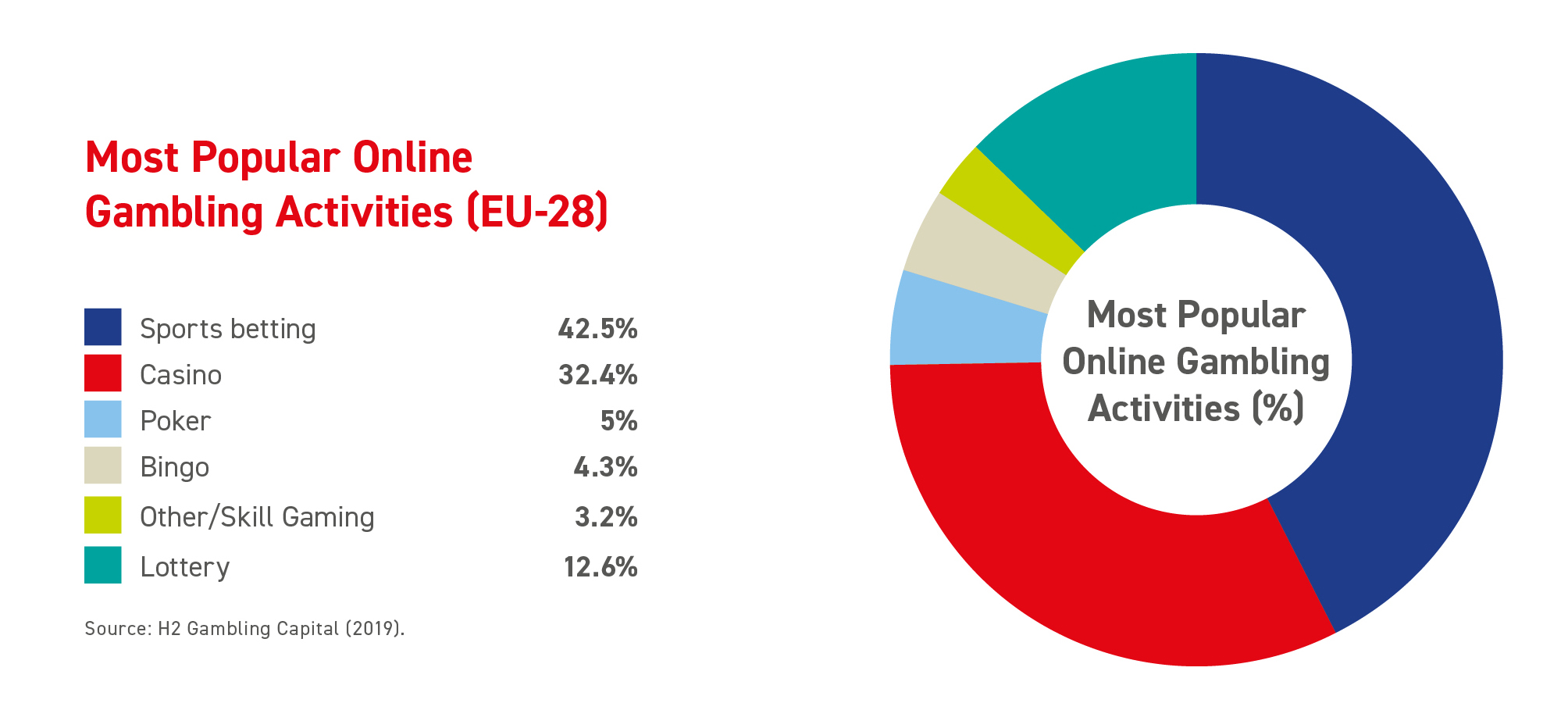October 2017 to September 2018, saw the GGY, OR Gross Gambling Yield, of the UK's gambling industry hit a staggering £14.5bn. Gambling enterprises are required to pay the UK government a minimum of 15% tax on any amount up to £2,370,500. The tax then increases accordingly to 20%, 30%, 40% and 50%. Thanks to these astonishing numbers, the gambling industry has cemented its place as one of the UK's largest and most profitable industries.
While there may be many people who disagree with gambling from a moral standpoint, and many who argue that vulnerable individuals are at risk of gambling addiction and therefore tighter controls should be imposed upon the industry as a whole, there is no denying that the UK gambling industry is a mainstay of the UK economy.
According to the latest report provided by the UK Gambling Commission, the casino news and tendencies aren't very positive in all industry sectors. The report shows how the gambling industry in Great Britain reacts to the impact of the COVID-19 pandemic, and what changes occur during this period in terms of revenue and other metrics. The Gambling Commission said the report had provided 'invaluable additional information' about the gaps in current treatment provision across Great Britain. It pointed to £9m it had diverted.
Gambling Industry News Uk Today
The Pieces of the Pie
Gambling Industry News Uk Headlines
The UK gambling sector can be divided into a number of different areas, namely; online gambling, betting shops, bingo halls, land-based casinos, arcades and lotteries. Of these, online (or remote) gambling – which includes online betting, online casino games, online bingo and online lotteries – is responsible for the lion's share of the profits; 39% or £5.6bn GGY. Land-based bookies come in second at 22.1% and the National Lottery follows closely at 20.6%. Traditional casinos rake in 7.4% and old-school bingo halls are responsible for 4.7%. 2017-2018 saw a slight downturn in overall profits compared to the previous years, however; the numbers still indicate that the UK's love of gambling remains strong and true.
Online Revival
New and improved UK online casinos cater specifically to the UK market. Many casino brands have versions of their casino sites for players outside of the UK, however; if a casino brand has sites that cater to a worldwide audience, their UK players will be redirected to the UK version of the site in order to ensure that the UK economy benefits from their GGY. There are hundreds of excellent new casino sites available to UK players, so many in fact that it can be a mammoth task for users to sift through them and find a site that suits their specific needs.
This is where another branch of the gambling industry comes in to play; the casino review sites. Review sites are run by industry experts that know exactly how things work behind the scenes; in other words, they know a good casino when they see one. These sites cultivate stellar reputations for delivering up-to-date information on everything casino-related and for providing players with meticulously curated lists of the best new UK online casinos on the market. We recommend following their advice whenever possible.

New Legislation
In response to the question of moral responsibility and the protection of vulnerable individuals, the UK government have imposed strict regulations and guidelines to combat the negative aspects of gambling. One of these measures was to introduce GambleAware, a charity charged with undertaking research on the negative aspects of gambling and thereby providing free prevention and treatment services to those at risk. And more recently, the UK government announced a cap on betting limits for FOTB (fixed odds betting terminals) – reducing the limit from £100 to £2.
Many people equate the decline in overall profits to the fact that punters are no longer able to get carried away on FOTB machines, however; this is viewed as a positive rather than a negative. Another major change for the UK gambling industry was the introduction of the 2014 Gambling Bill. The UK Gambling Commission is now responsible for all UK casino sites and gambling enterprises. The legislation in place ensures that no enterprise can offer gambling options without obtaining a licence from the UKGC.

Taxation
The 2014 Gambling Bill has done much to improve the gambling experience for both players and the general public. One of the biggest changes was the introduction of the 15% tax on all profits generated from betting. This tax actually works in the punters favour because they no longer have to pay tax on any of their winnings. This tax also ensures that the UK economy benefits from the continued growth of the industry and justifies its somewhat dubious nature. There may have been a few grumbles from industry insiders, but the fact is that the public perception of gambling has become more favourable because of the amount of money generated from the taxation.



New Legislation
In response to the question of moral responsibility and the protection of vulnerable individuals, the UK government have imposed strict regulations and guidelines to combat the negative aspects of gambling. One of these measures was to introduce GambleAware, a charity charged with undertaking research on the negative aspects of gambling and thereby providing free prevention and treatment services to those at risk. And more recently, the UK government announced a cap on betting limits for FOTB (fixed odds betting terminals) – reducing the limit from £100 to £2.
Many people equate the decline in overall profits to the fact that punters are no longer able to get carried away on FOTB machines, however; this is viewed as a positive rather than a negative. Another major change for the UK gambling industry was the introduction of the 2014 Gambling Bill. The UK Gambling Commission is now responsible for all UK casino sites and gambling enterprises. The legislation in place ensures that no enterprise can offer gambling options without obtaining a licence from the UKGC.
Taxation
The 2014 Gambling Bill has done much to improve the gambling experience for both players and the general public. One of the biggest changes was the introduction of the 15% tax on all profits generated from betting. This tax actually works in the punters favour because they no longer have to pay tax on any of their winnings. This tax also ensures that the UK economy benefits from the continued growth of the industry and justifies its somewhat dubious nature. There may have been a few grumbles from industry insiders, but the fact is that the public perception of gambling has become more favourable because of the amount of money generated from the taxation.
Rules and Regulations
The Gambling Bill has also enabled the UKGC to take the industry in a new direction; out of the seedy shadows and into a new era of transparency and good business practices. Thanks to the UKGC licence and regulations, new online casinos in the UK, in particular, have been forced to improve their services in numerous ways and the results have been beneficial to both the players and the casinos. The remote sector has increased its revenue thanks to new online UK casinos that offer heightened security measures, improved data protection, regularly audited software providers and games, a wider range of trustworthy payment providers and vastly improved customer service. More and more players are now signing up for online casino accounts because they feel safe in the knowledge that the casino will play fair and that they actually have a chance at winning a bob or two.
Employment and Charitable Giving
We've made much of the fact that the UK economy benefits from the GGY, but we should also mention that the gambling industry is responsible for employing over 100,000 workers in the UK. An employee often earns an above-average salary and, therefore, gets taxed accordingly. The industry's workforce also contributes to the economy by spending their hard-earned pennies in other sectors; housing, entertainment, technology and food to name but a few. And to end on a high note, we should also point out that from the 2017-2018 GGY alone, the National Lottery contributed over £1bn to charitable causes.
In conclusion, when it comes to the UK's gambling habits the pros certainly outweigh the cons. And the UK's GDP has benefited immensely from an industry that has pulled its socks up and revamped its image to become a stalwart of the economy.